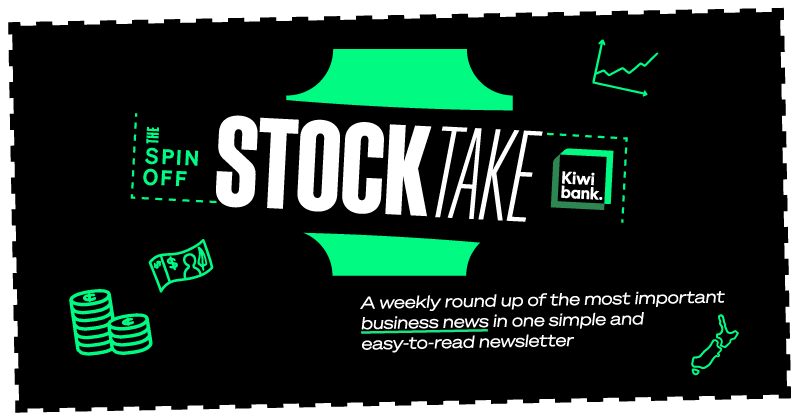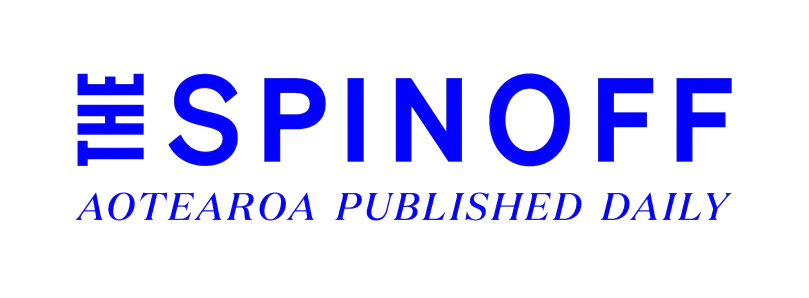The PM’s European agenda
The prime minister heads to Europe on Sunday to speak at a NATO summit and meet EU leaders. Primary sector leaders here say the current shape of the free trade agreement with the EU falls short.
Mōrena and welcome to The Bulletin for Tuesday, June 21, by Anna Rawhiti-Connell. Presented in partnership with Z Energy.
In today’s edition: fisheries industry short on workers; solar farm plans for mid Canterbury; meth decontamination continues to confuse; but first, details of the PM’s trip to Europe.
Prime minister Jacinda Ardern heads to Europe on Sunday (Photo: RNZ/Samuel Rillstone)
Prime minister picks NATO over CHOGM
Prime minister Jacinda Ardern heads to Europe on Sunday. Trade minister Damien O’Connor is also going. The prime minister will speak at a North Atlantic Treaty Organisation (NATO) summit in Madrid and meet with European Union (EU) leaders in Brussels. Writing for the Democracy Project, Geoffrey Miller suggests Ardern’s decision to go to the NATO summit and not the Commonwealth heads of government meeting (CHOGM) “symbolises the changes she is making to New Zealand foreign policy”. NATO is a European and US security alliance but has recently stated that China is a priority. Miller writes that Ardern’s invitation to speak is “a reward for aligning New Zealand’s foreign policy more closely with NATO – and the West generally”. Ardern said the summit visit doesn’t represent a shift towards the NATO alliance.
Free trade agreement negotiations with EU “nearing conclusion”
The government has been working to sign a free trade deal with the EU, which Ardern has said is nearing a conclusion. Negotiations have been underway since 2018. Writing for Farmers Weekly, Nigel Stirling understands the EU has agreed to scrap moderate tariffs on kiwifruit and honey but continues to stonewall on market access for the key exports of meat and dairy. Representatives from the Meat Industry Association, Beef + Lamb New Zealand and the Dairy Companies Association will all be in Brussels as well and at this stage, Stirling reports they think the deal falls short.
London calling
The prime minister will also meet with British prime minister Boris Johnson in London. New Zealand has a free trade agreement with the United Kingdom, announced last year via a video call laden with rugby metaphor. It was signed in February and includes the gradual phase out of primary sector customs duties. While there, Ardern will also “touch base” with Prince William and deliver a speech on foreign policy at Chatham House, site of origin for the Chatham House rule. National leader Christopher Luxon is also travelling to London in July. Ardern will head from Europe to Australia and then onto the Pacific Leaders Forum.
Awkward times at CHOGM
Johnson will be recently returned from the Commonwealth heads of government meeting (CHOGM). CHOGM takes place this week in Kigali, Rwanda, and foreign minister Nanaia Mahuta is attending. The host country is where Johnson’s government has been attempting to send refugees from multiple countries seeking asylum in the United Kingdom. It’s an arrangement made with the Rwandan government in exchange for an initial payment of £120m. A plane attempted to take off from England with seven asylum seekers onboard last week but the European Court of Human Rights interceded. Great account of this in what the writer calls a “shameless farce” in the New Yorker last week. Prince Charles will be representing the head of the Commonwealth at CHOGM and has reportedly called the deportation policy “appalling”.
Today The Spinoff launches a new weekly business newsletter. Stocktake is produced in partnership with Kiwibank and will feature the people behind the businesses driving Aotearoa and insight on how the forces affecting the economy of Aotearoa will impact the lives of New Zealanders. Sign up to Stocktake to get the first edition delivered to your inbox today – and go in the draw to win one of three prize packs from one of our favourite business success stories, Fix and Fogg. Two subscribers will receive a six-month supply and one lucky winner a full year’s supply of Fix and Fogg’s delicious nut butters.
Government turns down fishery industry request to help address labour shortage
Newsroom Pro editor Jono Milne reports on the fisheries industry trying to retain Pacific Recognised Seasonal Employer (RSE) workers here to fill labour shortages. Between 200 and 500 workers still had time left on their RSE visas at the end of fruit-picking season. The industry wrote to immigration minister Kris Faafoi asking that workers be given the chance to transfer over to better-paid seafood jobs at the start of New Zealand's hoki season. The request was turned down. Milne outlines the complexity of attempting to transfer workers from a scheme specifically designed for horticulture and viticulture workers into a new one. Chris Schulz, editor of The Spinoff's new business newsletter Stocktake, has more on worker shortages this morning. Stocktake goes out at 8.30am today so subscribe here for his story on how shortages are impacting business and an expert’s point of view on how they might play out.
Solar farm could power district
Local democracy reporter Jonathan Leask reports on plans for a solar farm in mid Canterbury that could power the Selwyn district. The government has made a commitment to achieving 100% renewable energy by 2030. Solar currently produces around 1% of energy in New Zealand. Land consent has been granted for the farm at a site in Lauriston. The Lauriston site is understood to be capable of producing 50 MW of power, which EA Networks chief executive Roger Sutton said is enough to make the district self-sufficient on a normal day and not have to take from the national grid. The Selwyn district has a hydro-electric power station that produces half the power required in winter, but does not operate in summer as the water is used for irrigation.
A vital message from The Spinoff’s publisher, Duncan Greive:
If you’re reading this, you’re hopefully getting value out of The Spinoff. Yet like many publishers, The Spinoff has suffered a significant drop in members, despite our costs continuing to increase. On one level I understand why our membership has dropped away. There’s a cost of living crisis, and inflation has made life hard for many of us. It’s totally normal to feel like you don’t need to support your local media organisation at a time like this.
The promise we’re making to you is that we’re actually better-suited to times like this than the pandemic itself. Our plan is to return to something more of what made us – coverage of culture, politics, te ao Māori and more with heart and humour. We will do that with features, essays and opinion pieces, but also podcasts, comics, video and newsletters. We are here to help walk you through this fascinating new era, and feel well-suited to being your guide.
But we can’t do it without you. The Spinoff has been cut out of the government’s enormous $100m plus Covid-19 campaign, which has been a boon to the big media companies and social media platforms. We returned the wage subsidy, unlike almost every other media organisation. The public interest journalism fund was narrowly targeted and is winding down. The big tech companies are refusing to do what they did in Australia and make meaningful deals with local media. And the recessionary drums continue to beat loudly, impacting the commercial spend we rely on, along with you, our members.
All of which is to say that we need your support more than we ever have. So please, if you can, click here to support The Spinoff by becoming a member today.
Methamphetamine decontamination issue continues to confuse
Four years ago, Sir Peter Gluckman published a report that identified that where methamphetamine had only been consumed, contamination would have to hit 15 micrograms per square metre before decontamination was required. As Stuff’s Miriam Bell reports, a dispute between a landlord and an insurance broker has highlighted that there are currently two sources of information being used about what level of contamination creates a health risk. The insurance industry is using the existing national standard which says a level of more than 1.5 micrograms per square metre qualifies as contaminated while Kāinga Ora and the Tenancy Tribunal are working to Gluckman’s recommended level. The insurance industry says it will continue to use the existing standard until the government formally updates it.
Got some feedback about The Bulletin, or anything in the news? Get in touch with me at thebulletin@thespinoff.co.nz
All of us need to get a flu vaccine. So why is it so expensive? Emily Writes says the immunity gap is hurting families and putting pressure on our health system. Chris Schulz attends his first music festival in two years and wonders where all the people are. Shanti Mathias watches Everything I Know About Love and gets prematurely nostalgic for the early-2010s. Airana Ngarewa pays tribute to Puanga, "the keen lover", as we enter the week of Matariki.
Dave Rennie enters the chat
In the wake of Rugby Australia saying they might break away from the Super Rugby competition, Wallabies coach Dave Rennie has urged them to stay in it. Rennie says the current model benefits the Wallabies. Rennie says he understands Rugby Australia's point of view on the commercial discrepancies in broadcasting revenue that many believe are behind the call, but that it's important for the development of his players that they continue to face New Zealand sides.
Aotearoa, land of the digital cloud
“There’s talk of Makarewa becoming a global tech centre. On a 43-hectare block of farmland three kilometres outside the town a tech company called Datagrid is planning to build a series of warehouses that will contain more computer power than anywhere else in the country.”
For a long read today, I recommend George Drivers’ recent feature for North and South on why technology companies are spending billions of dollars building warehouses to store New Zealand’s, and the world’s, information here.











